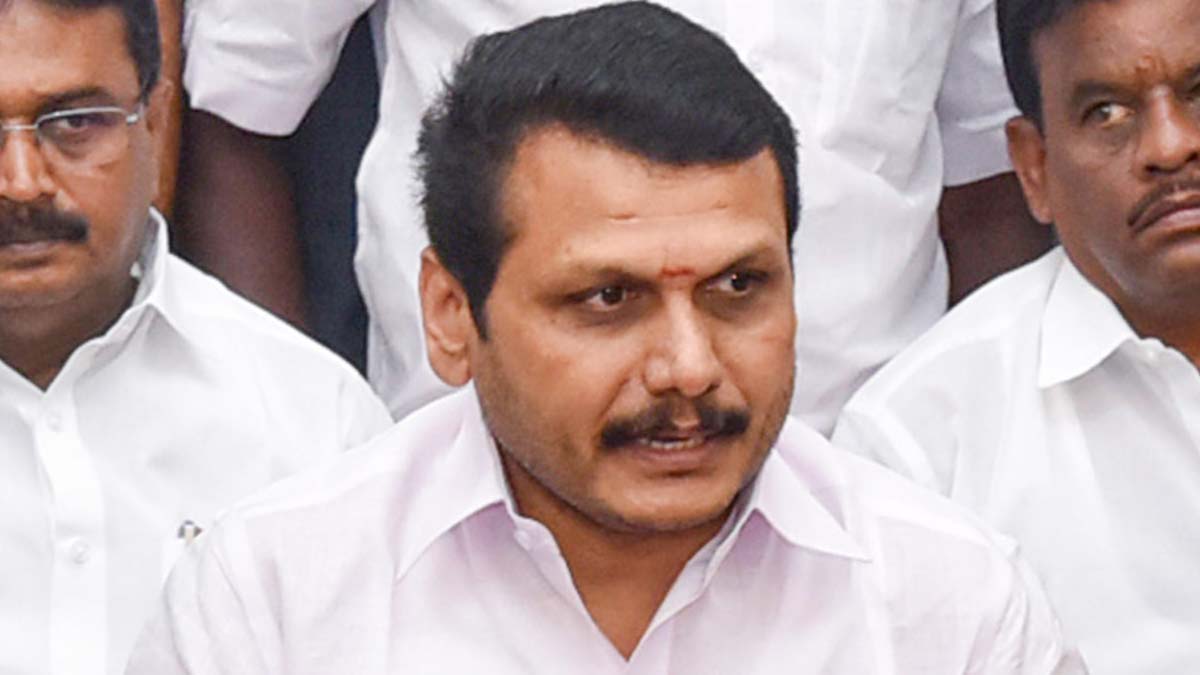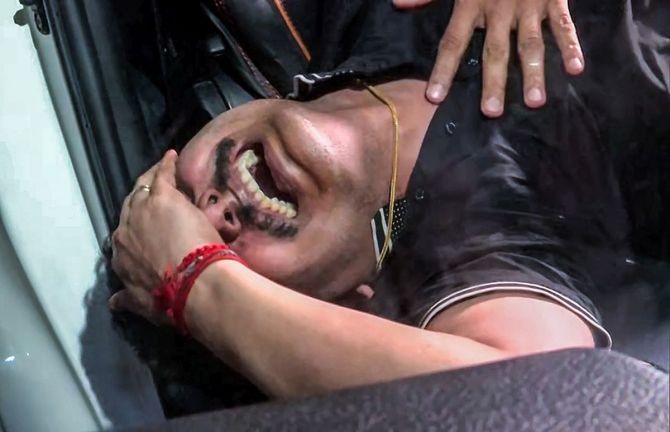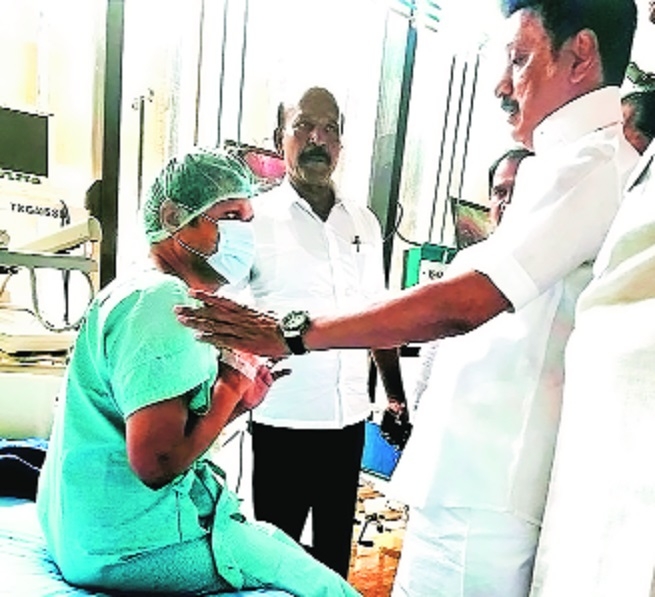In a significant turn of events, Tamil Nadu Minister V. Senthil Balaji has been arrested by the Enforcement Directorate (ED) on allegations of money laundering. The arrest followed a series of raids conducted at various locations, including Balaji’s official residence in Chennai and his office at the state secretariat. The ED’s actions have sparked a political uproar, with Chief Minister MK Stalin criticizing the Bharatiya Janata Party’s (BJP) “backdoor tactics” against political opponents.
/newsdrum-in/media/media_files/6GGRmMsJz12jag9OQlTW.jpg)
Tamil Nadu Minister Senthil Balaji Advised Urgent Bypass Surgery Following Money Laundering Charges
Shortly after his arrest, Balaji complained of uneasiness and was subsequently hospitalized. Medical reports revealed that he had undergone a coronary angiogram and was advised to undergo bypass surgery as soon as possible. Chief Minister Stalin personally visited Balaji at the government hospital in Chennai, emphasizing the seriousness of the situation.
The arrest comes in the wake of the ED’s intensified investigations into allegations dating back to Balaji’s tenure as the Transport Minister in the previous All India Anna Dravida Munnetra Kazhagam (AIADMK) government between 2011 and 2015. It is alleged that significant sums of money were extorted from individuals in exchange for promised employment opportunities that were never fulfilled. Balaji, who had previously been associated with the AIADMK, joined the ruling Dravida Munnetra Kazhagam (DMK) in 2018 following the demise of former Chief Minister J. Jayalalitha.
The Supreme Court’s recent decision to allow the ED to proceed with its money laundering investigations into the alleged scam paved the way for Balaji’s arrest. This development comes on the heels of a separate raid conducted by the Income Tax (I-T) Department at over 40 locations in Tamil Nadu linked to the minister.

Chief Minister Stalin, voicing his concern over the raids, condemned the ED’s actions as a direct attack on the federal principles of governance. He cautioned the BJP about the consequences of such vindictive politics, emphasizing that the people’s silence should not be underestimated. Mamata Banerjee, the Chief Minister of West Bengal, also criticized the BJP for its alleged misuse of central agencies, describing the raids as unacceptable and desperate acts.
Congress President Mallikarjun Kharge joined the chorus of criticism, denouncing the raids as harassment and intimidation by the central government. He accused the Modi government of using investigative agencies as tools to target political opponents, asserting that such tactics would not deter the opposition but only strengthen their resolve to fight against what they perceive as anti-people policies.
Life-Saving Bypass Surgery Urgently Recommended for TN Minister Arrested on Grave Money Laundering Charges

Amidst the political turmoil, Balaji maintained his innocence, claiming that he was on his morning walk when the raids commenced. He also mentioned that all necessary documents had been previously submitted to the I-T department during their earlier searches. R.S. Bharathi, a prominent leader from the DMK, questioned whether the raids were specifically targeted at Balaji, noting a coincidence between the power outage during Union Home Minister Amit Shah’s visit to Chennai and the timing of the raids. Bharathi alleged ulterior motives behind the actions, suggesting they may be a diversionary tactic to counter the threat posed by the BJP’s alliance partner, the AIADMK.
As the developments unfold, the focus now shifts to Balaji’s health and the urgent need for bypass surgery. The case raises important questions about the use of investigative agencies and the ongoing debate regarding their impartiality and adherence to democratic principles. The outcome of these investigations will have far-reaching implications, not only for Balaji but also for the political landscape of Tamil Nadu and the wider perception of justice and accountability.
The arrest and subsequent hospitalization of Tamil Nadu Minister V. Senthil Balaji have sent shockwaves through the state’s political landscape. As Balaji awaits bypass surgery, the implications of his arrest and the ongoing investigations loom large.

The series of raids conducted by the Enforcement Directorate at Balaji’s official residence and office have been seen by many as politically motivated. Chief Minister MK Stalin wasted no time in denouncing the actions of the Bharatiya Janata Party (BJP), accusing them of resorting to “backdoor tactics” to target political opponents. The timing of the raids, coupled with the Chief Minister’s strong criticism, has sparked speculation about the underlying motivations behind the ED’s actions.
However, the arrest of Balaji comes as a result of the ED’s intensified investigations into allegations of money laundering during his tenure as the Transport Minister in the previous AIADMK-led government. The accusations suggest that substantial sums of money were extracted from individuals in exchange for promised employment opportunities that were never fulfilled. These allegations, which date back to 2011-2015, have now come back to haunt Balaji.
The Supreme Court’s decision to allow the ED to continue its money laundering investigations was a crucial turning point in the case. It provided the necessary legal backing for the agency to take further action, leading to Balaji’s arrest. The move has further highlighted the growing influence and assertiveness of investigative agencies in tackling corruption and financial irregularities.

